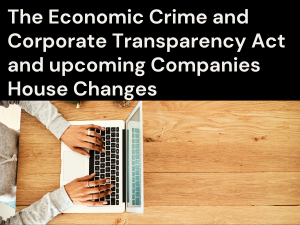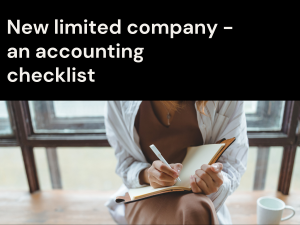Small business owners in the UK need to be aware of their tax obligations, as they can face serious penalties if they don’t pay the correct amount of tax at the right time. However, you might find yourself wondering: when does a small business have to pay tax in the UK?
This guide will help UK business owners understand exactly what tax they need to pay, when they have to pay which type of tax, and provides information on how to go about doing so. By the end of our handy guide, you’ll be much more in the know about the different types of tax and when they need to be paid in the UK.
Small Business Tax Explained
Whether you’re a limited company or sole trader, it can be helpful to know what to expect in your tax bill. Let’s start with some basics of limited company tax obligations.
As a limited company, the types of tax you’re likely to encounter will include Corporation Tax, PAYE/National Insurance, and Value Added Tax (VAT).
Limited company tax obligations include:
- Corporation Tax is a tax on your company’s profits, and must be paid 9 months and 1 day after the end of your company’s financial year. This can be calculated using HMRC’s Corporation Tax calculator, or with the help of a small business accountant. Currently, corporation tax is charged at 19% of your profits.
- PAYE/National Insurance Contributions (NICs) are also payable by limited companies, and are calculated based on the salaries paid to company directors and employees. It must usually be paid monthly or quarterly depending on your account with HMRC.
- Value Added Tax (VAT) may also be applicable for limited companies, depending on how much turnover your business earns in a year. If your turnover exceeds £85,000 per year, you’ll need to register for VAT and charge it on all sales. VAT returns are usually filed quarterly and VAT is payable one month and 7 days after the end of your VAT quarter.
Does a small business have to pay corporation tax?
As mentioned above, corporation tax is payable by limited companies on their profits. This means that, yes, a small business will have to pay corporation tax if they are registered as a limited company in the UK.
Sole traders and partnerships don’t pay corporation tax, but it’s important to note that the profits of these businesses may still be subject to income tax.
What Tax Does a Sole Trader Have To Pay?
If you are a sole trader, you’ll have to pay the following taxes:
- Income tax
- Class 2 NI & Class 4 NI
- VAT
- CGT.
Income Tax
As a sole trader, you still need to pay income tax on any profits above your personal tax allowance, usually £12,570. This will be calculated based on the profits of your business, and is usually submitted with a Self Assessment tax return each year. This will be due on 31st January for the previous tax year (April-April).
To calculate your income tax as a sole trader, you’ll also need to take into account any other sources of taxable income (such as rental property or a second job) and personal allowances. HMRC’s Self Assessment calculator can help with this calculation, as can a small business tax expert.
Class 2 NI & Class 4 NI
National insurance contributions (NICs) for sole traders are split into two categories: Class 2 NICs and Class 4 NICs. As a sole trader, you’ll pay:
- Class 2 if your profits are £6,725 or more a year, and;
- Class 4 if your profits are more than £11,908 a year.
These tax contributions contribute towards your state pension and other benefits, such as maternity leave, and are payable based on your profits rather than a set salary or wage.
To submit your NICs as a sole trader, they are usually included as part of your Self Assessment tax return each year, which needs to be submitted by 31st January for the previous tax year.
VAT
VAT registered businesses (such as sole traders or limited companies) charge VAT on their sales and services, as well as claiming back any VAT paid on business expenses.
You must register for VAT if your annual turnover exceeds £85,000, unless your business offers certain types of exempt services (such as financial or insurance services). You can choose to register for VAT if your annual turnover is below £85,000.
A VAT registered business must:
- Pay all VAT you owe to HMRC
- Account for VAT on any goods imported into the UK
- Keep records of how much VAT you pay for things you buy for your business
- Include VAT in the price of all goods and services at the correct rate
- Report the amount of VAT you charged your customers and the amount of VAT you paid to other businesses by sending a VAT return to HM Revenue and Customs (HMRC) – usually every 3 months.
If you are registered for VAT, you’ll likely need to submit VAT returns every quarter. The timings for these vary, but they are usually due within a month and seven days of the end of the quarter which is when the tax is payable too.
Capital Gains Tax (CGT)
Capital Gains Tax is a tax on the profit you make from selling assets, such as property or shares. As a sole trader, this may be applicable if you sell business assets for more than they were originally purchased for.
CGT is usually submitted with your Self Assessment tax return, and the rate at which you pay depends on your total income for the tax year (including any profits from self-employment).
It’s important to keep track of assets purchased, as well as any profits made from selling them, as this can affect your CGT liability. A small business accountant or tax expert can offer advice on how to manage and minimise this.
What Happens If I Don’t Pay My Business Tax?
Not paying your taxes as a sole trader (or any business) can result in penalties and interest charges, as well as potentially affecting your credit rating. In extreme cases, not paying your taxes may also result in legal action from HMRC, such as bankruptcy proceedings or prison sentences for severe cases of tax evasion.
If you’re operating as a sole trader and have any concerns about paying your taxes, it’s important to speak to HMRC or a small business tax expert for advice as soon as possible.
They may be able to offer support and assistance with catching up on any overdue payments, rather than facing penalties or legal action in the future.
So – When Does a Small Business Have to Pay Tax?
In the UK, small businesses (whether sole traders, partnerships or limited companies) will have to pay tax on their profits, as well as any applicable VAT and NICs.
You should keep track of all profits and expenses for your small business, so that you can accurately calculate and submit any taxes due. An expert bookkeeping service or accountant can offer support with this, as well as advice on minimising your tax liabilities.
Don’t forget to submit any tax returns by the relevant deadlines, to avoid penalties from HMRC. Happy (tax) filing!
Looking For Expert Support With Small Business Taxes?
For support with your company tax return, VAT services or any other tax queries, get in touch with our team of small business accountants at Raw Accounting. Our expert team can offer advice and support on all aspects of small business taxes, to ensure you’re meeting your obligations and maximising your profits.
Contact us today for a free discovery chat.
Small Business Tax FAQs
What are business rates in small business taxes?
Business rates are a tax on commercial properties, payable to the local council. Small businesses pay business rates when they occupy non-domestic properties, such as shops or offices. The amount payable depends on the rateable value of the property, as assessed by the local authority.
How much can a small business earn before paying tax in the UK?
In the UK, sole traders and partnerships must pay income tax on any profits but each individual is entitled to a £12,570 personal allowance which reduces how much of the profits are subject to tax. Limited companies will have to pay corporation tax on any profits.
Do you pay tax in the first year of business?
In the first year of trading, a small business will usually have to pay income tax on any profits made above the personal allowance (currently £12,570 for individuals). If your profits exceed the threshold for VAT registration, you may also have to pay VAT.






